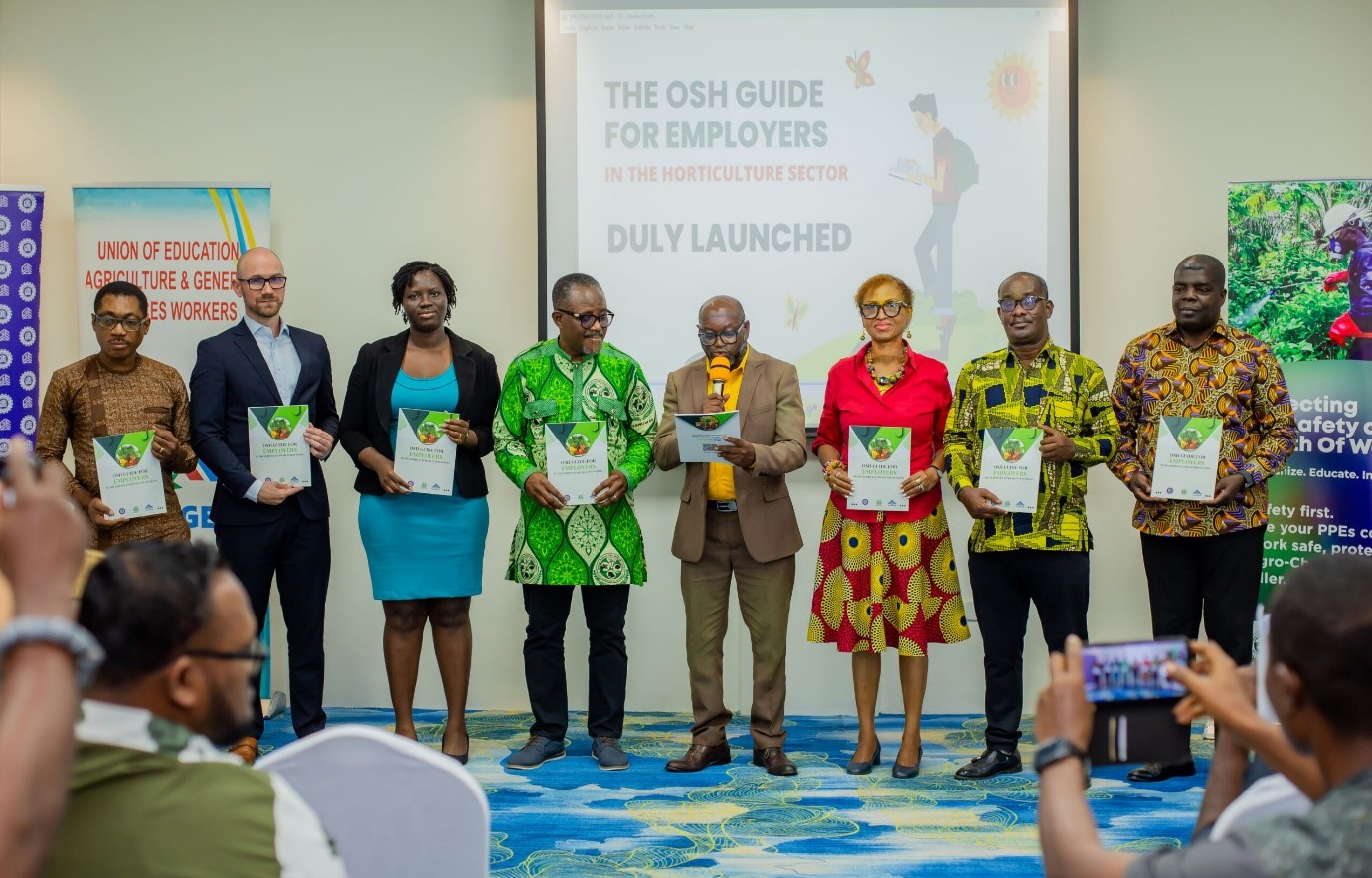By Francis
Copyright thebftonline

By Wisdom JONNY-NUEKPE
The Ghana Employers’ Association (GEA) has launched an Occupational Safety and Health Guide for employers in the country’s horticulture sector.
The guide was developed by GEA in collaboration with trade unions such as the General Agricultural Workers Union (GAWU) and and the Union of Education, Agriculture and General Services Workers (UNEAGES).
The launch, which took place in Accra, brought together enterprises and employers across the horticulture value chain, trade unions and key ministries, departments and agencies for adoption and implementation at the enterprise level.
This practical guide is a key milestone in a joint effort to promote responsible business practices and decent work.
Ghana’s horticulture sector is a vital engine of the national economy, creating thousands of jobs and supporting rural livelihoods. Yet, this growth has come with significant occupational safety and health (OSH) challenges. Workers in the sector often face risks from agrochemicals, machinery and poor working conditions.
Speaking at the launch, the Chief Inspector of Factories, George D. Gashon, said issues concerning OSH are not just matters of legal compliance, but are a major hurdle to building a sustainable and resilient industries.
He explained that the new OSH guidelines align with both national and international standards, including the Labour Act, 2003 (Act 651) and International Labour Organization (ILO) Conventions.
By implementing these standards, the sector, according to Gashon, can better protect its workforce and ensure long-term growth.
He noted that horticultural settings present specific OSH challenges, including risks from heavy machinery, the use of pesticides and chemicals, ergonomic issues from repetitive tasks and the potential for exposure to various environmental factors.
“It is for this reason that the DFI is tasked with ensuring that employers in horticulture and other sectors provide a safe and healthy working environment,” he said.
Dr. Rens Twijnstra, First Secretary and Policy Advisor at the Embassy of the Kingdom of the Netherlands, offered a strong show of support for the initiative. He emphasised how a robust OSH guide will help Ghana’s horticulture sector meet international standards, paving the way for greater global competitiveness.
Various speakers underscored the importance of occupational safety and health as a cornerstone of decent work, enterprise sustainability and export competitiveness. They said that the guide provides practical tools, checklists and templates for employers to adopt, thereby strengthening compliance with national regulations while protecting the health and well-being of workers.
GEA’s Chief Executive Officer, Alex Frimpong, noted that the employers’ OSH guide is designed as a user-friendly and practical resource for horticulture enterprises, ranging from large plantations and packhouses to outgrower and smallholder farms.
He said the launch of the OSH guide marks the beginning of a sustained effort to institutionalise better workplace practices in the horticulture sector.



